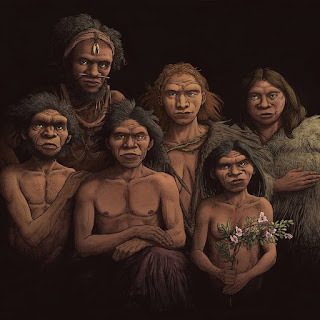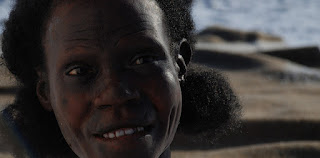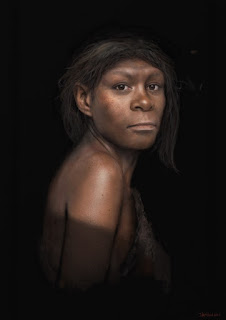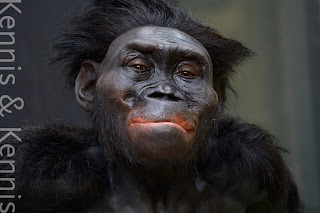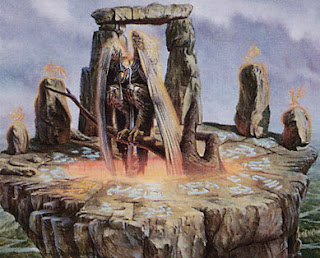Oh boy yet another god damn magic system
Magic sure is fun, isn't it? Doing things which would otherwise be impossible through whatever means. And there are a lot of really good magic systems out there.
There's the classic spell slots system, with its endless permutations within mainstream D&D and Retro-clones. That's a familiar system and one that offers a genuinely interesting system to work with, as long as the rules and rulings cover more than just "point at x to blow it up."
The GLOG has a wonderful magic system, as I'm sure 95% of people who read this will agree. The magic dice, mishaps and dooms all characterize magic as potentially extremely dangerous and unpredictable, as well as ensuring that the casters don't quite know how many spells per day they have, adding to the whole mystique.
Buuuut for my own personal system, these feel a bit inadequate. There are probably more magic systems out there (in any form of media) than there are species of beetle. Do you know how many species of beetle there are? If you guessed anything lower than 100,000 you're going to be terrified when you look it up.
Aaaanyways. The previously mentioned two magic systems are good, but mechanically they convey very different styles of magic. Magic mechanics occupy this weird space in game design where they can't just be an abstract mechanic. The way the rules operate is very tied into how it works, and I was kind of dissatisfied with the different systems presented in games.
I think magic should have a price, and I want anyone capable of using magic to be able to somewhat gauge what they can do, but I don't want players to spend an abstract easily-regained resource for huge dramatic effects, at least not within my current system.
Then, I found this post. Its like... Less than a hundred words and basically just musings on a topic, but I wanted to build off of this core idea. So I did. Quite a bit.
Some important details going forward.
- My homebrew game system is classless and level-less (mostly. see below). Based off the lovely "Die Trying" and "Pariah" systems.
- It also takes inspiration from Esoteric Enterprises. There is a Grit/Flesh/Horrible Wounds system. This is somewhat relevant.
- I prefer freeform but somewhat intuitively understandable magic systems. Magic Words is good, but also not quite what I want to do.
- Despite there being no classes in my system, there are Glog-Like templates. Δ Templates to be exact. Only Δ Templates. Its going to be extremely rare to start off with one in my games, and many things are locked behind these. This leads directly into the magic system.
I want to do the impossible.
Alright, first, you need a Delta Template. I'm going to come up with a list of these, and they all have conditions, but long story short you need to undergo a fairly rigorous initiation. It doesn't have to cause permanent damage, or be morally repugnant (though it can be), but it does have to be extreme. Like, drugging yourself into another dimension and half-burying your body under a tree for a few days.
Once you fulfill the requirements for the template, congratulations! You can do magic! Though you may have to perform some form of maintenance to keep it "active."
(Side note: Inactive templates within this system do not give certain benefits, but may still give others. It varies and is a mechanic I want to explore in more depth.)
So, in addition to some sweet perks, maybe a some required maintenance, you can now do the impossible!
Okay but what can magic do?
Anything!
Well kind of.
You see, all magic has a price. It can be personal, or it can be something else. It all depends on the context. Its a freeform system after all. The only real restriction I have is that they must be thematically linked to the desired outcome in some fashion.
Lets list out some examples.
- Summoning something requires a sacrifice of 1 flesh dice per flesh dice summoned. Whatever is summoned probably has grit dice equal to their flesh dice (or it may be broken between many summoned entities). Flesh dice can also be spent to give it magical abilities.
- Animating a corpse isn't extremely difficult. Bringing it back to full life is nearly impossible, but simple animation is fairly easy. Living things require food to survive (2 rations/day in my system, minimum). So by burning rations, you can animate a corpse. Each ration is 12 hours of animation, and the corpse may still perish.
- Animating parts of a corpse is easier. crawling hands are relatively easy to make.
- Animating constructs is similarly simple, requiring food.
- Permanent animation may require summoning a spirit of some kind. Binding a spirit will probably require a sacrifice equal to or more than its flesh dice, but you could just... Talk to the spirit. Its an NPC after all, and not totally unreasonable (barring some extreme examples).
- Grit is worth less than flesh, and so sacrificing it allows for only minor magics, often things you could already do but in impossible ways. Summoning a small flame, picking up a keychain, etc. These are basically cantrips.
- Time is also a sacrifice. Time spent performing rituals can be used to offset other sacrifices. I'd say an hour = A flesh dice but you can probably eyeball it.
- Like the example in the link above, digging a key into your hand (dealing 1 flesh damage and disabling that hand for the rest of the day) could unlock a door, but so could destroying a lockpick. (you might just want to use the lockpick on a door, but if it requires a passcode then the lockpick would still probably work)
And you can probably see the sorts of things this can do. Every impossible action carries a cost. I would probably come up with a table of relative costs and the sorts of things they can do. What dice equal how much time equal how much action and such. Generally thats going to vary from system to system though so I'll include it in the full document of my system or its own post.
But what about divination? Potion making? Artifice?
Urg, okay.
Divination is a skill in my system, using the same skill system as Pariah. Its not magic, at least not in the same way as the above system is.
In Pariah you roll a 1d6 and add it to your stat to see if you succeed at any given goal. If its over the target number you succeed. Skills just increase the size of the dice, up to a maximum of 1d12.
For divination you just roll the appropriate skill dice, no target number, and compare it to the following table (adapted from here). Each type of divination has its own separate skill dice.
1-4: Vague, extremely cryptic and symbolic. Very very hard to interpret.
5-8: Cryptic, but less vague and with obvious clues.
9-12: Clear answer, but still a little bit mysterious. Details are vague, the rest isn't.
13+: Clear as crystal. No need to interpret anything.
Certain things add bonuses to this, and some forms of divination require tools. I'll make a list of that later. Each time you do this, the maximum roll on your dice is reduced by 1. A full day without divining anything will clear this malus.
Herbalism, Brewery and other such things are also skills in my system, but how they work is a bit different. There are ingredients, with a variety of effects and interactions. I have a format for it in my head so I'll just make that its own post.
Artifice is just making real things. Swords and such. Making enchanted things or otherwise magical objects requires a sacrifice as above. Probably a long ritual too (which is a sacrifice, of time). Again, I'd eyeball it based on your system.
Other Ideas
Permanent magic powers require further initiation, or permanent sacrifice, or both. They're less versatile than the above system but they can be done basically at will. They may still have some freeform elements to them, depending on the ritual or sacrifice.
Restricting certain senses can expand other senses. Or a specific sense. Either improving them or adding supernatural ones.
Some monsters and forces may have an easier time with magic, especially Godlings.
Getting power from faith and religion requires an initiation rite (obviously, love me some initiation rites) and certain rites and devotions can do specific things. These are ritualized and often easier than the above system, but joining a faith comes with complications (both political and magical). Or you can just have religion work differently, like insulting a god giving a chance of being cursed. That works too.
Going into the Otherworld (or other worlds in general) requires drugs. Psychoactive entheogens. Taking lower doses of those can also count as a sacrifice.
The death of an entire town isn't because of the curse, it probably caused it.
This won't be the last I talk about this system, but this concludes my current thoughts on it. Ciao for now.


